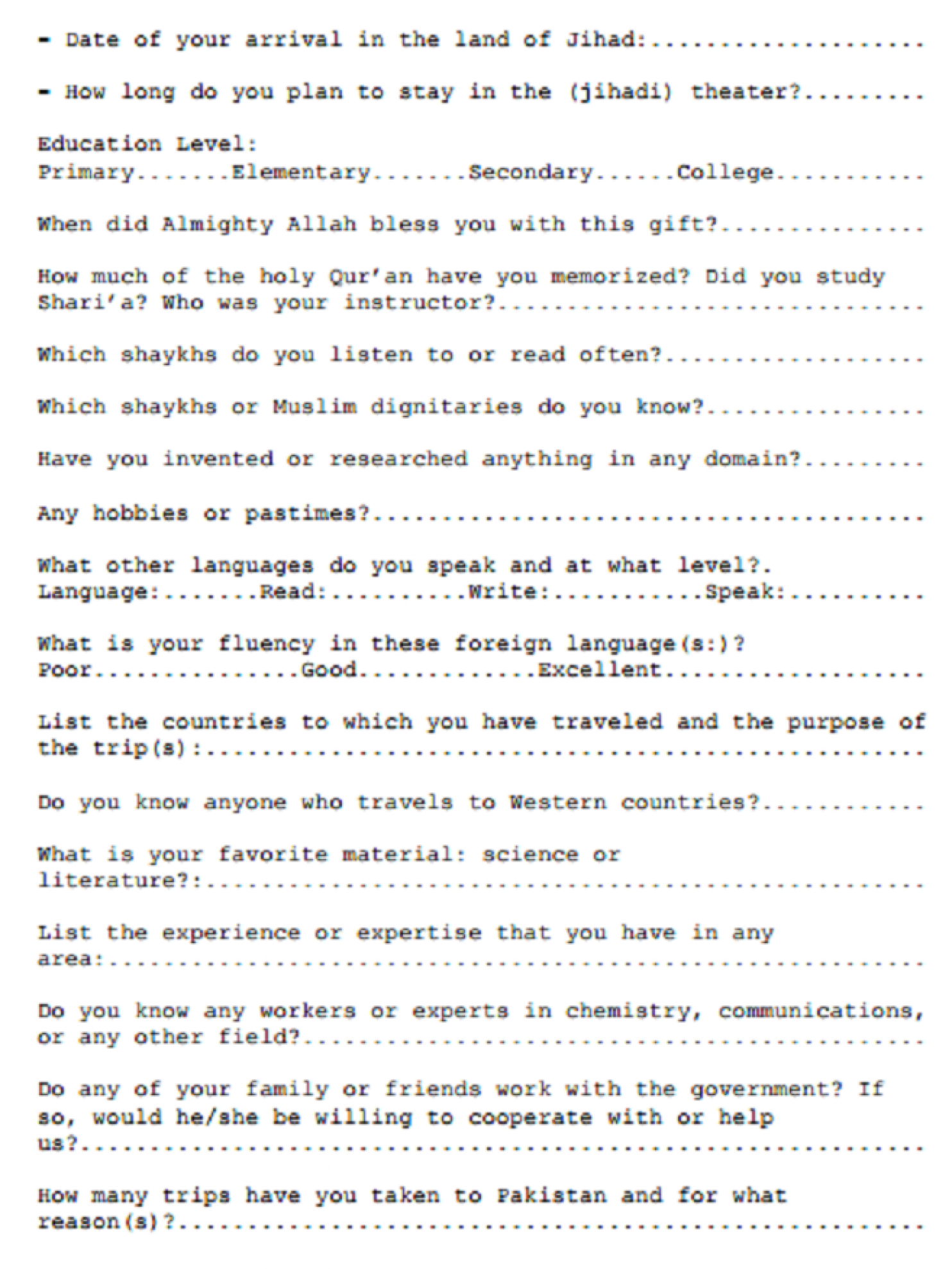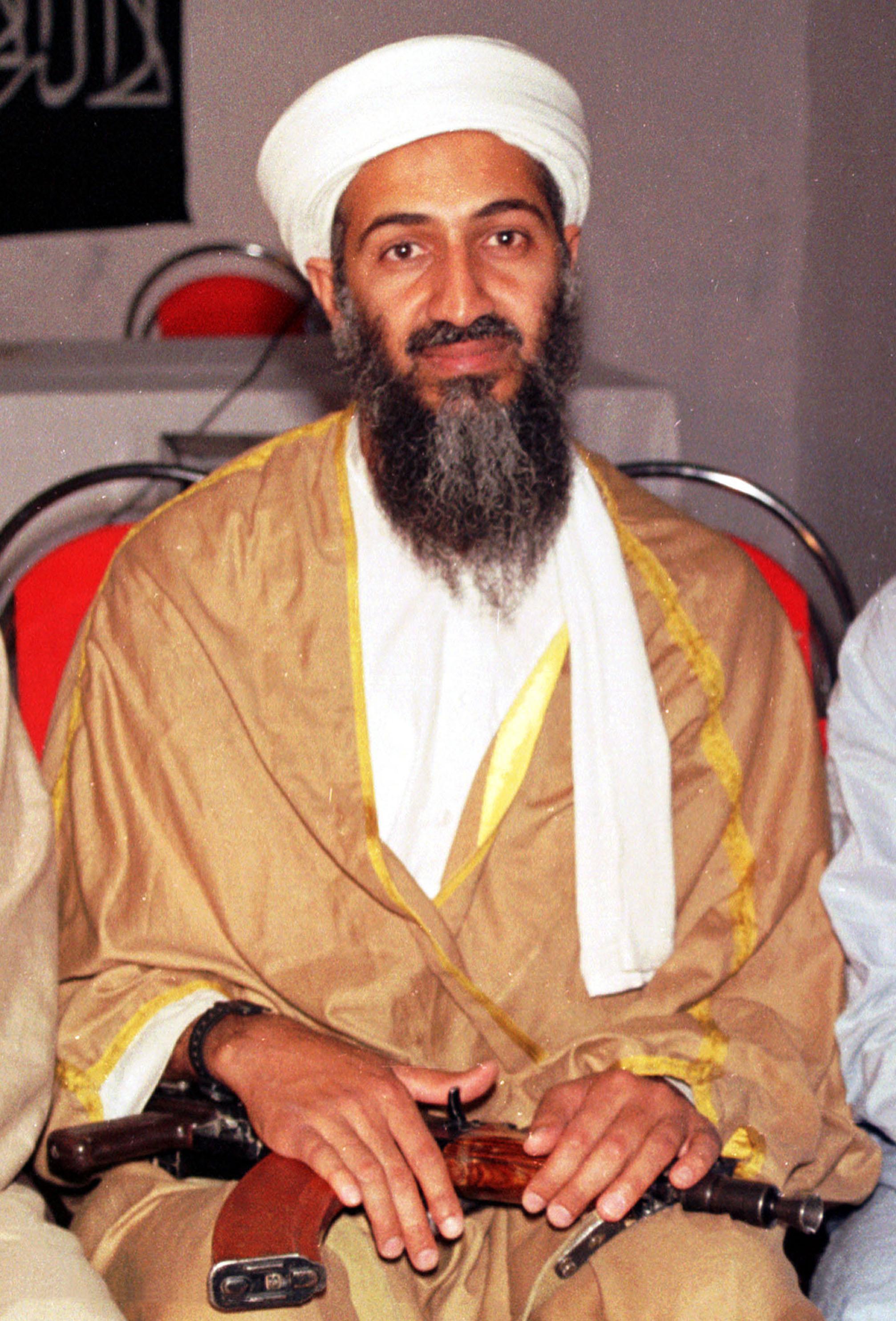No matter where you fall on the Seymour Hersh nailed it or is full of it spectrum, you have to admit: Calling, essentially, the entire U.S. government liars is a much faster way to get hard to reach information than FOIAing it. On Wednesday, the U.S. government declassified a trove of Osama bin Laden documents it says were taken during the May 2011 raid on the Bin Laden compound in Abbottabad, Pakistan. The administration’s thinking persumably goes: The new info will bolster its argument that it did what it said it did to track down and kill the al-Qaida mastermind. And the new data will surely be overlaid onto Hersh’s account of things to see if they line up or not.
The documents, dubbed “Bin Laden’s Bookshelf” by the Office of the Director of National Intelligence, range from Bin Laden’s letters to deputies and intimate correspondence with family members to religious texts and books, articles, and journal studies on the evolving post-9/11 world that Bin Laden helped to create. There were 39 English-language titles in the Abbottabad compound, many of which could have been found on the bookshelf of an international relations graduate student, including: Bob Woodward’s Obama Wars, a pair of Noam Chomsky titles, and The Rise and Fall of the Great Powers by Paul Kennedy.
The correspondence from Bin Laden to al-Qaida leaders reveals a man increasingly claustrophobic and isolated in Abbottabad. He wrote notes composed on a computer and that were then smuggled out on thumb drives. Bin Laden writes of leaving Abbottabad and undertaking the risky venture of finding a new hideaway in a 2011 letter to one of his wives, Khairiyah, who fled to Iran. Via the Washington Post:
In the three-page document, bin Laden recounts his efforts to reunite his family, but says his proposals for doing so were rejected by Abu Ahmed al-Kuwaiti and his brother, who were responsible for protecting the al-Qaeda leader and whose families also lived at the compound. “They are getting exhausted — security wise — from me staying with them and what results from that,” bin Laden wrote. “They have reached a level of exhaustion that they are shutting down, and they asked to leave us all.” Bin Laden wrote that he proposed compromises, including allowing Khairiyah to visit only temporarily, or having her replace one of the other residents so that the number of people staying at the compound would not increase. All were rejected by his protectors, bin Laden wrote, prompting him to consider the possibility that “I might have to leave them.”
One document found in the compound shows how mundane even extremism can be day-to-day. There have been accounts before of how meticulous al-Qaida accounting practices often are, and what appears to be an al-Qaida application form reinforces the notion that even global jihad requires a fair amount of paperwork. The application encourages respondents to write legibly and answer truthfully before asking a series of questions that is part visa application and part college application.

Office of the Director of National Intelligence
